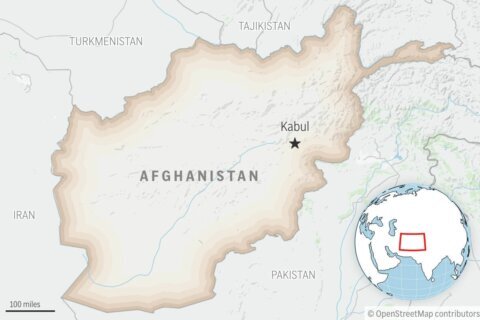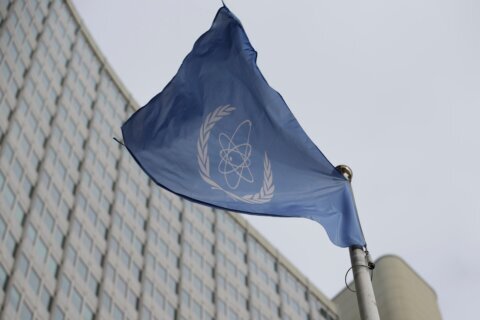While Ireland holds a referendum on Friday to vote for a change on its laws governing abortion, other European countries still embrace legislation that doesn’t allow the procedure, or permit it under very specific circumstances. Malta, San Marino, Liechtenstein, Poland, the Vatican, Monaco and Andorra each have rules that separate them from the rest of the continent.
“In Europe, the standard approach that almost all European countries have taken has been to legalize women’s access to abortion on request or on socioeconomic ground,” says Leah Hoctor, Europe regional director for the Center for Reproductive Rights, an international advocacy organization. “Twenty-five out of 28 European Union countries have done that and 40 out of 47 Council of Europe (member) countries have taken that approach.”
In Ireland, the vote is considered too close to call. The Eighth Amendment of the Irish Constitution states that an unborn child has the same rights as the mother, making it almost impossible for a woman to end a pregnancy voluntarily. “The State acknowledges the right to life of the unborn and, with due regard to the equal right to life of the mother, guarantees in its laws to respect, and, as far as practicable, by its laws to defend and vindicate that right,” reads the article in the Constitution.
Abortion is one of the most controversial topics in Ireland, with the United Nations criticizing the country for “cruel” and “inhumane” laws that hinder women from choosing whether to become mothers or not. According to data compiled by the Center for Reproductive Rights in Europe, abortion in Ireland is only allowed in situations when the woman’s life is in danger and the restriction has even led to calls for international lawsuits against the country’s legislature.
While it comes as no surprise that Vatican City does not allow abortion for any reason — the Catholic doctrine specifically mentions this practice is ” gravely contrary to the moral law” — some secular countries with highly religious populations follow the same rules. Abortion in Malta is prohibited under any circumstance, including rape, incest, socioeconomic grounds, fetal malformations, a woman’s mental and physical health or her life itself. Malta is also one of the most religious countries in Europe, with more than 90 percent of people saying they believe in God and the Catholic religion being the official religion.
“Abortion has always been banned and , as much as we’ve moved on in social and sexual rights, including the introduction of gay marriage, we haven’t started discussing abortion,” says Herman Grech, online editor at the Times of Malta, who covered the topic and also wrote a play about it. Debates in the country usually deteriorate into opposing sides trading accusations, while surveys still show that people perceive abortion as murder, Grech adds.
The main opposition party to the current government, the Nationalist Party, is strongly against the procedure, but may be more willing to discuss change if new legislation passes in a Catholic country such as Ireland. “Still, I cannot see any Maltese government touching such a politically delicate subject in the medium term,” Grech concludes.
The small countries of San Marino and Andorra have similar strict restrictions, according to data compiled by the Center for Reproductive Health in Europe. Ninety percent of the population of San Marino identifies as Catholic, and in Andorra the Constitution specifically mentions privileges for the Catholic Church, and a woman who consents to an abortion can face up to two and a half years in prison.
The principality of Liechtenstein allows abortions only to save a woman’s life and preserve her physical and mental health and is not available on request. In 2012, the prince even threatened to veto the results of a referendum if the population chose to legalize abortion in the first three months of pregnancy or if the fetus suffers from malformation.
Until 2009, abortion was prohibited in Monaco, but today abortion is permitted in certain cases, such as rape, incest, fetal impairment, and when a woman’s life and health are at risk. Elective abortions, however, are still are not allowed.
In Poland, abortion laws have generated massive protests after officials there attempted to ban it in 2016; it is currently permitted only in cases of rape, incest, and fetal impairment and with parental consent if the woman is under the age of 18. Even though it is permitted, doctors willing to perform an abortion in Poland are hard to find, leading women to seek care in neighboring countries such as Germany.
[MORE: Learn which countries are viewed as the best for women.)
“In Poland , not only do many women who decide to end a pregnancy not qualify for legal abortion , but many who do qualify and who would fall within the exception ground listed in the Polish law are not able in practice to access abortion as a results of a range of barriers that combine,” Hoctor says.
While a change in the constitution in Ireland might incentivize talks elsewhere in Europe, experts say it’s highly unlikely that laws will change.
“With the spotlight on Ireland once the yes vote passes, it will become even more predominant that we, Malta, are the only country in the EU with such restrictive laws,” Dibben says. “But we need a concentrated effort, more effort, more stories on the topic than anything else [for things to change] and this will take time.”
More from U.S. News
Countries Where Abortion Is Illegal Under Most Circumstances
Irish Abortion Vote Underscores Weakening Role of Catholic Church in Society
These Countries in Europe Have the Strictest Abortion Laws originally appeared on usnews.com






